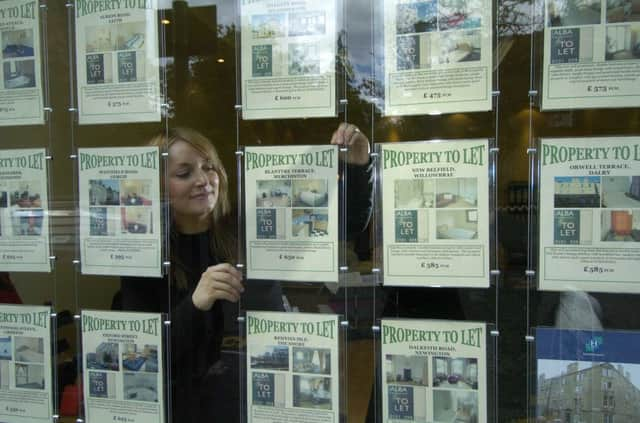Edinburgh’s grand plan for private home rentals


The city council plans to set up an arm’s-length company called Edinburgh Homes and plough profits reaped from the rents back into council services.
City chiefs state a lack of housebuilding by the private sector has left a major shortage of housing which has in turn forced up the cost of buying or renting a home in the capital.
Advertisement
Hide AdAdvertisement
Hide AdThey believe the authority is well-placed to step in and fill the gap, helping to bring down prices and raise standards.
Under the plan, Edinburgh Homes would attract private investment to fund new developments; contracts would be awarded to construction firms to build the homes; and Edinburgh Homes would then let, manage and maintain them.
The first of the council’s new private rented homes are expected to be built at a site already earmarked for development at Fountainbridge, where they would go up alongside new affordable homes.
Council housing leader Cammy Day said the authority would continue to build council houses for rent, but those for the private rented sector would be aimed at professionals and others able to pay higher sums.
He said: “We recognise there is a market in the private-rented sector that will bring in income for the city. The private sector is not building very much, so we can get into that, build some more houses, and recycle money back into the council.
“We would aim for about 1,000 a year.
“It has been done elsewhere and it seems to work well. It will make a profit for the council which will be reinvested into council services.”
Mr Day said there would be a mix of houses and flats of different sizes, to fit the market. He added: “The other side of that is about bringing up the quality of the private rented sector.
“There are a huge number of good private landlords, bur there are also some who are not so good.”
Advertisement
Hide AdAdvertisement
Hide AdThe initiative, which follows a similar scheme in Manchester, was given a cautious welcome by some in the property rental sector while others said councils should stick to building social housing.
A report to next week’s meeting of the city council’s health, social care and housing committee notes concerns about a rise in the cost of housing if the demand for private rented accommodation is not met and says the purpose of the new company would be to build “good quality, well managed homes to rent in the city”.
The report states: “Since the 1970s housebuilding has failed to keep pace with demand. This, and the relatively easy availability of credit for house buying (until 2008), are the main reasons that the cost of buying or renting a home in the city is too high for households on low to moderate incomes.”
It points out that like other growing cities, land in Edinburgh has been subject to land speculation.
“Investors buy land at inflated prices then do not sell on the land until another investor is willing to pay significantly more. Sites can change hands many times without serious thought being given to developing them.”